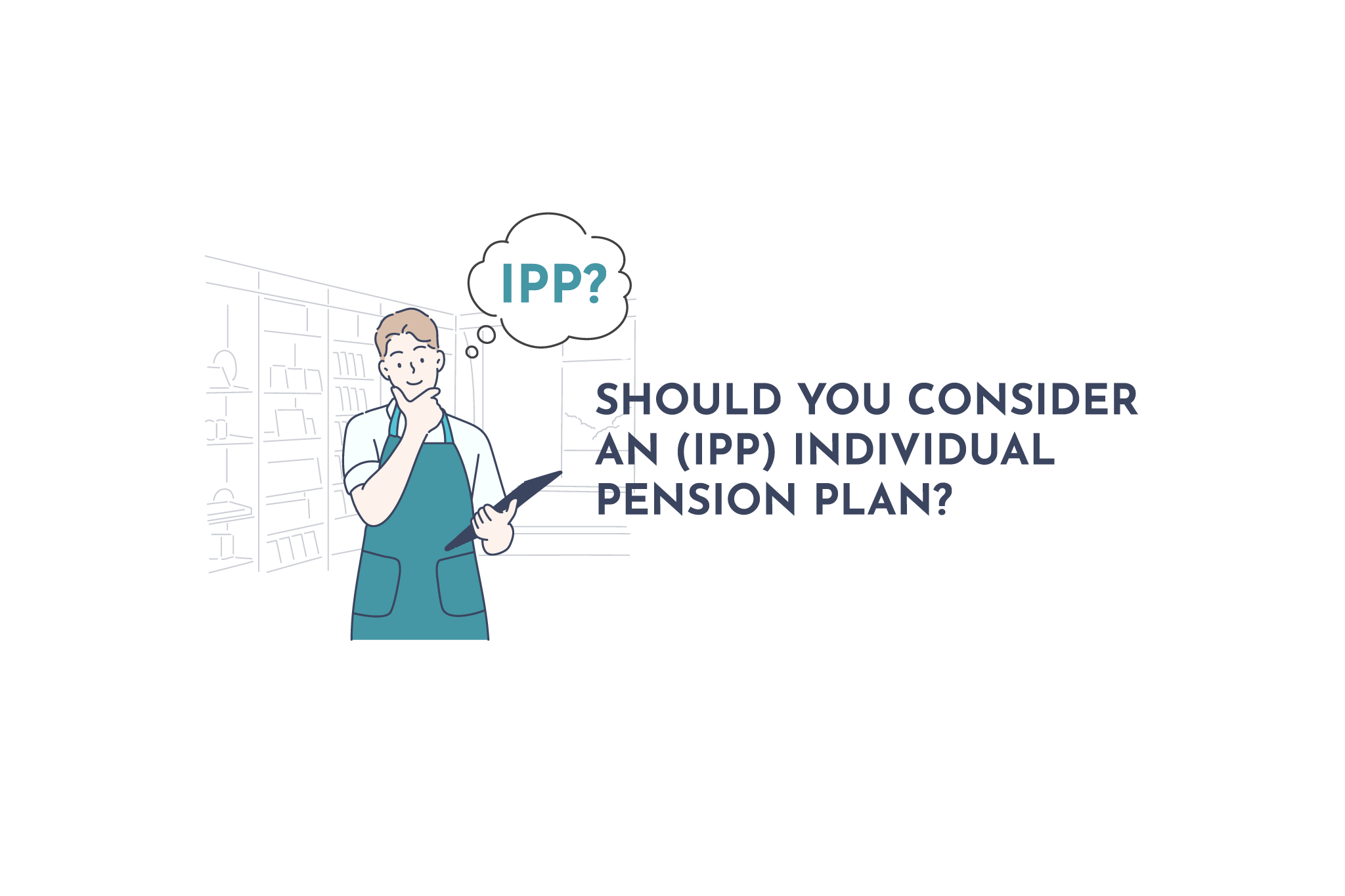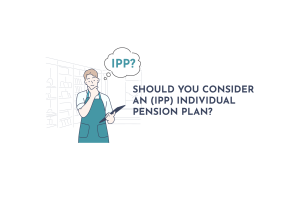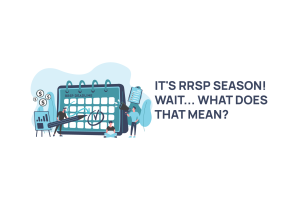If you own a small business in Canada, it can sometimes be hard not to feel a bit targeted. One of the benefits of taking the risk associated with starting and then growing a small business into a successful venture has always been that there are some tax advantages available to your corporation that help you defer some income tax. These advantages have come under increasing pressure in the past few years. Examples include the proposed increase in capital gains inclusion to 66.67% and the ways legislators have made it more difficult to split income. At the same time, there have been significant changes in the retirement landscape. For previous generations, the dream of working for a single employer for many years and then retiring with a nice pension to support you through your golden years has all but evaporated. Offering their entire staff a defined benefit pension plan has become a non-starter for many employers. The idea of funding the future liabilities of that style of pension plan is simply too risky for many small businesses. But what about the owners themselves? What if they would still like a defined benefit style of pension income in their future? Shouldn’t there be a potential retirement reward for the risk, sweat equity, and overall commitment to building their business? There is a potential solution available. An Individual Pension Plan (known as an IPP) is a retirement plan available to business owners that, if you meet some of the requirements, can be a really attractive option. Let’s take a look and see if an IPP is the right choice for you.
In this article:
- What is an IPP?
- Who Can Have an IPP?
- Why Would You Choose an IPP?
- Things to be Cautious About
- Conclusion
What is an IPP?
An IPP is a defined benefit registered pension plan that a business owner can take advantage of to provide themselves with enhanced retirement income security. An IPP will provide a business owner with a guaranteed income once they retire, something that is very uncommon with RRSP/RRIF savings. An IPP utilizes actuarial calculations to determine the contributions into the plan, ensure it stays in line with regulatory requirements, and calculate the benefit that will be payable at the time of retirement. The goal of an IPP is to offer the maximum pension benefits allowable within the guidelines of the Income Tax Act, which makes it a great option for business owners to consider for themselves.

Who Can Have an IPP?
There are a few rules about who is eligible to have an IPP. The most common person an IPP is set up for is someone known as a person who is ‘connected’ to a corporation, meaning that you own at least 10% of the shares of a Canadian-controlled private corporation. You could also be related to one of the owners of the corporation. While technically an IPP could be offered to someone unrelated to a business owner, the regulatory hoops that you have to jump through make this idea impractical most of the time. So, if you meet the share ownership requirement, what else makes an IPP potentially a good fit for you?
- You should be over 40 years old.
- Your employment earnings exceed $150,000 a year.
- You like the idea of corporate and personal tax efficiency.
- You want to maximize your retirement savings.
Why Would You Choose an IPP?
If you own a corporation and are earning significant income from it, you can sometimes find the tax rules in Canada restrictive. Saving for the future is difficult because of the limits placed on how much you can put away in tax-efficient investment options. When you are dealing with these types of frustrations, you may want to consider an IPP because it provides you with potential solutions:
- The contribution limits are higher than RRSPs. The contributions into the plan increase with age, so you are able to accumulate more savings for retirement in shorter time periods.
- You can save retroactively. Once established, you can make past service contributions that put money into the plan for years before the plan was set up. This boosts pension assets right away.
- There are tax advantages for your corporation. The funding of the plan is 100% tax-deductible to your corporation, so you reduce the taxable income of the corporation. It is also an advantage that the investment management fees from the plan are deductible to the corporation (there is a specific way that this needs to be done, but it works), again lowering the corporation’s taxable income.
- Tax Tip: When it comes to taxation, an IPP is a separate entity from your corporation. This means that by funding the IPP, you can reduce the amount of passive assets in your corporation. Why is this important? To qualify for the small business deduction and reduce your corporate tax rates on active business income, your corporation needs to earn less than $50,000 in passive income a year. By taking some of that asset base in the corporation that was generating passive income and moving it into the IPP, you can continue to get the growth on the money while it is in the IPP while at the same time reducing your passive income in the corporation and increasing the odds that you remain eligible for that small business deduction.
- Setting up an IPP allows you to remove money from your corporation on a tax-deferred basis. Since the IPP is a separate entity, you are able to move pre-tax corporate income into the plan to fund it, and you defer paying the tax until you withdraw payments from your IPP in the future.
Overall, as a business owner, one of the biggest advantages is that an IPP is designed to maximize your tax-deferred retirement savings.

Things to be Cautious About
Sign me up! The IPP sounds like a no-lose situation. While an IPP is a powerful retirement planning tool, as with all things in life, the IPP isn’t simply a list of reasons why you should have one without any consideration of the potential downside. When it comes to an IPP and deciding if it is the right fit for you, you need to account for things like:
- The complexity of the plan. There is lots of detailed reporting and actuarial calculations associated with the ongoing administration of an IPP. There are often expenses associated with operating these plans that go beyond investment management fees.
- There are some financial constraints in retirement. Since an IPP is a defined benefit pension and you are setting yourself up with guaranteed monthly income, you can’t make a lump sum withdrawal if you need extra money.
- There are mandatory funding requirements for an IPP. This means that you need to be certain that your corporation can meet the funding requirements both right now and into the future.
- How you pay yourself matters. Contribution room into an IPP is only generated from T4 income. So if you pay yourself primarily through dividends, this strategy may not work for you.
Overall, an IPP may not be a great solution for anyone who values flexibility and wants access to variable income streams in retirement.
Conclusion
As I mentioned at the very start of this discussion, many people who have built successful businesses in Canada face the same challenge. They have spent years investing everything they have into the growth of their business. All their time, money, and energy have gone into building a successful company. Oftentimes, this leads to a situation where, as retirement approaches, business owners realize that they may have neglected planning for their own future after they are done working. If you are a business owner who feels like your retirement savings aren’t where they should be, an IPP is definitely worth exploring because of the ability to use your pre-tax corporate income to boost your savings by taking advantage of the increased contribution room and catch-up ability. At the end of most of our discussions, we always come back to the same recommendation: you need to have a retirement plan. If you own a business where an IPP is an option for your retirement, you still need to know if it makes sense as part of your overall plan. Contacting the team at Strata Wealth & Risk Management to see if an IPP works for you as part of a well-built overall retirement plan will help you build your retirement nest egg in the most efficient and effective way possible for your unique circumstances.





